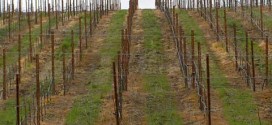“Leaving something behind is not
a mitigation for environmental harm”
PAUL V. CARROLL
Attorney at Law
5 Manor Place
Menlo Park, California 94025
telephone (650) 322-5652
telecopier (same)
February 2, 2006
Sonoma County Board of Supervisors
575 Administration Drive, Room 100A
Santa Rosa, CA 95403-2887
Re: General Plan and Zoning Code amendments regarding timberland conversions
Dear Supervisors:
I write on behalf of Friends of the Gualala River (FoGR) regarding the proposed timberland conversion ordinance.
If adopted, the County intends to find that the ordinance and related changes would be categorically exempt under CEQA, based on the premise that they increase the level of environmental protection. Unfortunately, this finding cannot withstand scrutiny. The centerpiece of the ordinance is a requirement that for every acre of timberland converted the landowner must preserve and/or rehabilitate two acres of timberland. The County takes the position that this two-acre requirement will mitigate the permanent loss of timberland. The County’s reasoning is flawed.
As presently proposed, the two-acre requirement, is not a mitigation under logic or law. The so-called “preservation” of two acres for every one destroyed is not a mitigation unless (1) the two acres are legally threatened with imminent development or will be in the foreseeable future, and (2) it is reasonably likely that such development will be approved. Timberland that is not threatened with imminent development cannot be “preserved” in any meaningful sense. Since such land is not in danger of being lost, it is sophistic to say that its continued existence will mitigate the permanent destruction of other timberland. To call this “mitigation” is tantamount to saying that a developer can mitigate the destruction of a natural resource by not having plans to destroy all of it.
What concerns FoGR is that the two-acre requirement – while at first blush appealing – is on closer scrutiny something of a shell game. I agree with FoGR’s perception and concern. The County’s two-acre strategy allows a landowner to permanently destroy timberland as long as he owns land he has no intention of developing. Taken to its logical conclusion, it would allow the permanent destruction of one-third of Sonoma County’s timberland so long as two-thirds remain. But leaving something behind is not a mitigation for environmental harm.
Under CEQA, the proposed two-acre requirement does not qualify as a mitigation. It does not avoid the impact, since timberland is permanently destroyed. (CEQA Guidelines, § 15370, subd. (a).) It does not minimize the impact; allowing a landowner to destroy one-third of his timberland hardly minimizes the impact. (CEQA Guidelines, § 15370, subd. (b).) It does not repair, rehabilitate, or restore the impacted environment; the impacted environment is permanently altered. (CEQA Guidelines, § 15370, subd. (c).) It does not eliminate the impact over time through maintenance; again, we are talking about the permanent removal of timberland. (CEQA Guidelines, § 15370, subd. (d).) And it does not compensate for the impact by replacing it with a substitute environment. (CEQA Guidelines, § 15370, subd. (e).) This latter provision of the Guidelines refers to the so-called “zero net loss” policy in which a given environment or resource is created for every one lost. That is not the case here. This is a one-third net loss policy.
In sum, as presently proposed, the ordinance and related actions should not be approved as categorically exempt from CEQA. The categorical exemption is based on a faulty premise, namely that the two-acre requirement is a mitigation. It would only be a mitigation if the land “preserved” were itself slated for development. The proposed categorical exemption therefore is legally flawed.
Thank you for your consideration of this letter.
Very truly yours,
Original signed
Paul V. Carroll
cc: David Schiltgen, Permit & Resources Management Department
Steven Woodside, County Counsel
 Friends of Gualala River Protecting the Gualala River watershed and the species living within it
Friends of Gualala River Protecting the Gualala River watershed and the species living within it


